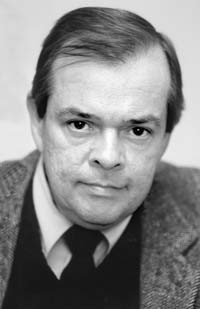Already in NATO and joining the European Union, Poland would seem to be exactly where Ukraine says that it wants to be. Moreover, the size of the Polish and Ukrainian economies were about the same at the time Communism collapsed, which would seem to indicate that they were at approximately the same starting point. They were not, and this is good point for a brief discourse on why within a few years the Polish economy was five times the size of the Ukrainian one and what Ukraine needs to do in order to get to the point our Polish friends have achieved.
First of all, Poland had private peasant agriculture. 90% of the land was under the plow pulled by horses. This might not seem terribly progressive in terms of North American agribusiness, but it is actually very important, because a yeoman farmer will work very hard precisely because he knows he is working for himself. He might even buy his neighbor’s plot, and thus begin the concentration of land resources that ultimately leads to that same agribusiness we see in Iowa and Alberta. I simply doubt that this can be done on the basis of feudal “collective agricultural enterprises,” as they have renamed the collective farms in these parts. I could name one formerly prominent politician, who dragged a young girl into the cinderblock building of the district Party committee, did what he wanted, and she was later found hanging by the neck dead because she simply could not live with it. I know the once young journalist who was told at the time not to write about it, because it would be “anti-Party.” The culprit knows who I am, and I know who he is. Farming is not based on such people. Let honest farmers get to work and get their hands dirty.
Secondly, Poland had what distinguished political scientist Jerzy Wiatr called controlled pluralism. There was, along with the Communist Party, the Peasant Party and Democratic Party. There was Tadeusz Kotarbinski, a non-Marxist philosopher, as head of the Academy of Sciences. There was a discourse among Marxists and those who thought differently, both of whom would probably have been locked up here, because even their Marxism was different. With the exception of perhaps a half a decade of high Stalinism, they had access to the literature they needed and could follow what was going on in the West. I will not speak of Kultura in Paris that everybody read and from which they received a breath of cultural fresh air. All this meant our Polish friends were better adapted and could make themselves European in a relative short time. Perhaps there is something to learn here.
Thirdly, our Polish friends pioneered the idea of civil society. In the 1970s young intellectuals who had been expelled from the university asked how to get the workers and intellectuals together in order to defend society from the state. They created the Committee for the Defense of the Workers (KOR) that later evolved into the Committee for Self-Defense of Society (KSS) that literally destroyed censorship and later produced the Solidarity trade union movement. People like the exiled philosopher Leszek Kolakowski reinvented the idea of civil society (it can be traced back to Hegel) in order to explain what some of his own former students in Poland had managed to do. This was, of course, replaced for a time with General Jaruzelski’s martial law, much preferable to the Soviet occupation that would have been the alternative, but when Communism fell, Poland was ready to step boldly on the road to the West. They had concentrated on society, not the state, and this prepared them for the journey that has taken them where they are.
Ukraine was damaged much more by Communism and has a much longer row to hoe, but the example of our Polish friends shows us what to aspire to and where to go. Sociologically and thus in terms of what was politically possible, Ukraine was and remains far different from Poland. I will not idealize Poland, but for all its problems, which our Polish friends discuss among themselves most freely, it has shown progress in making headway to where Ukraine also says it wants to be. One would hope that the year of Poland in Ukraine is above all a learning experience, an experience of fraternal peoples who each wish the other well. They have the experts just waiting for an invitation. If Ukraine can even get to the point where it can make use of Poland’s expertise, this will represent tremendous progress and serve the interests of both nations.







